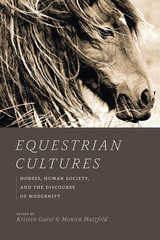
Kristen Guest and Monica Mattfeld place the modern period front and center in this collection, illuminating the largely untold story of how the horse has responded to the accelerated pace of modernity. The book’s contributors explore equine cultures across the globe, drawing from numerous interdisciplinary sources to show how horses have unexpectedly influenced such distinctively modern fields as photography, anthropology, and feminist theory. Equestrian Cultures boldly steps forward to redefine our view of the most recent developments in our long history of equine partnership and sets the course for future examinations of this still-strong bond.
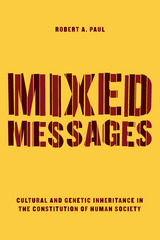
Examining a wide array of cultures, Paul reveals how the inherent tensions between these two modes of transmission generate many of the features of human society, such as marriage rules, initiation rituals, gender asymmetry, and sexual symbolism. Exploring differences in the requirements, range, and agendas of genetic and symbolic reproduction, he shows that a properly conceived dual inheritance model does a better job of accounting for the distinctive character of actual human societies than either evolutionary or socio-cultural construction theories can do alone. Ultimately this book offers a powerful call for a synthesis of the traditions inspired by Darwin, Durkheim, and Freud—one that is critically necessary if we are to advance our understanding of human social life.
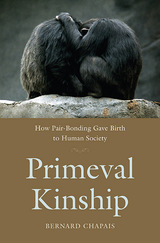
At some point in the course of evolution—from a primeval social organization of early hominids—all human societies, past and present, would emerge. In this account of the dawn of human society, Bernard Chapais shows that our knowledge about kinship and society in nonhuman primates supports, and informs, ideas first put forward by the distinguished social anthropologist, Claude Lévi-Strauss.
Chapais contends that only a few evolutionary steps were required to bridge the gap between the kinship structures of our closest relatives—chimpanzees and bonobos—and the human kinship configuration. The pivotal event, the author proposes, was the evolution of sexual alliances. Pair-bonding transformed a social organization loosely based on kinship into one exhibiting the strong hold of kinship and affinity. The implication is that the gap between chimpanzee societies and pre-linguistic hominid societies is narrower than we might think.
Many books on kinship have been written by social anthropologists, but Primeval Kinship is the first book dedicated to the evolutionary origins of human kinship. And perhaps equally important, it is the first book to suggest that the study of kinship and social organization can provide a link between social and biological anthropology.
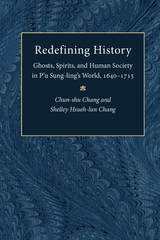
While P'u did not attain his goal of becoming a statesman, having failed exam after exam for fifty years, he was not impeded in his intellectual and literary pursuits. When he died in 1715, he left a body of work including over 500 essays, 1,295 poems, 119 lyrics, 18 encyclopedias and handbooks, 20 operas, 100 folk songs, and 500 short stories. He went on to become one of the most well-known scholar-writers and the best known short-story author in Chinese history. The 500 stories in Liao-chai chih-i, which P'u composed in his self-styled capacity as historian, had the most lasting influence of any single work on the shaping of popular consciousness in China.
Following the life and literature of one man, this study sets out to detail the history of the Ming-Ch'ing dynastic transition in the East Shantung region. It is based on an exhaustive exploration of contemporary Chinese historical and literary sources, including local histories, clan and family records, autobiographical and biographical materials, folklore, essays, poems, and plays: in short, the entire range of literary sources. Using a comprehensive historical approach, the authors cover a broad array of issues relevant to the topic at hand.
Redefining History is an important source for the study of Chinese history and literature and comparative historical studies. It will also appeal to people interested in the relation between history and literature, issues of gender and class, race relations, biographical studies, and popular culture movements.
Chun-shu Chang is Professor of History, University of Michigan, and Honorary Professor of Chinese History, China. Shelley Hsueh-lun Chang is Visiting Associate Professor of History and Research Associate, Center for Chinese Studies, University of Michigan.
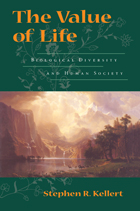
The Value of Life is an exploration of the actual and perceived importance of biological diversity for human beings and society. Stephen R. Kellert identifies ten basic values, which he describes as biologically based, inherent human tendencies that are greatly influenced and moderated by culture, learning, and experience. Drawing on 20 years of original research, he considers:
- the universal basis for how humans value nature
- differences in those values by gender, age, ethnicity, occupation, and geographic location
- how environment-related activities affect values
- variation in values relating to different species
- how vlaues vary across cultures
- policy and management implications
READERS
Browse our collection.
PUBLISHERS
See BiblioVault's publisher services.
STUDENT SERVICES
Files for college accessibility offices.
UChicago Accessibility Resources
home | accessibility | search | about | contact us
BiblioVault ® 2001 - 2024
The University of Chicago Press









